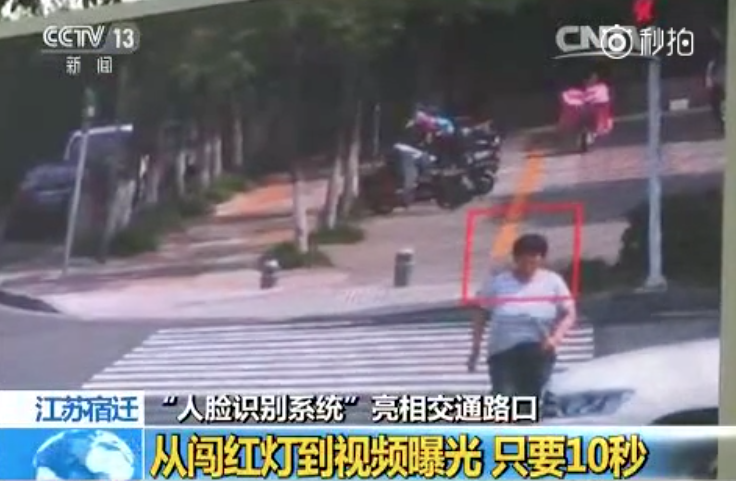Efforts by some Chinese cities to use facial recognition software to shame jaywalkers have been met with concerns that the practice may violate pedestrians’ privacy.
Cities including Jiangbei, Jinan, and Suqian recently implemented face recognition software at busy intersections, after a system was first rolled out in Shenzhen in April.
The initiative is the latest attempt to discourage the common practice of jaywalking, where pedestrians, drivers, cyclists, and other road users often disregard traffic rules. Pedestrians are known to cross intersections in packs, disrupting the flow of traffic.

The system in Jinan automatically takes four photos and a 15-second video if there are pedestrians or non-motorised vehicles crossing the street. It automatically extracts photos of offenders’ faces, and shows the images on big screens placed at the intersection. The system works even in the dark, according to China National Radio.
It also uploads users’ information to the police system. After verification by officers, information – including the violator’s headshot, name, age, place of household registration and partial ID number – will be displayed on intersection screens, newspapers, and on the internet, according to a deputy research director with the Jinan traffic police.
Jaywalkers in Jinan will be punished with a 20 RMB fine, or put on temporary crossing guard duty. The three cities have set up similar systems, CNR reported.
But experts have raised concerns that such measures could potentially violate pedestrians’ privacy.

Li Xiandong, a professor at the China University of Political Science and Law, told Legal Daily on Friday that one should ask whether there is a legal basis for exposing the personal information of offenders.
Li said: “Criminal activity should be reported to [police] units, but should common illegal actions be reported? Civil law protects the principle of the right to privacy, so publicising data should be done cautiously, or it could infringe upon privacy.”
Innovation vs. privacy
Zhang Zhuting, a professor at the government’s school for training transport officials, said that solving problems using innovative technology should be encouraged, but officials should also take citizens’ privacy into consideration when exposing personal data, and do so in a measured way.
He suggested that the public be informed when they enter the zone that their personal information is being taken, and that their illegal behaviour would be exposed. The authorities should also take steps to mask sensitive information or withhold it, he added.
But social media users on microblogging site Weibo did not seem concerned about privacy issues.

An online survey conducted by Sina showed over 2,000 people were in favour of the measure, while 650 were against it.
Many reactions on Weibo suggested support for the initiative. One of the top comments on a news story said: “It’s keeping you from dying, but you think it’s violating your privacy?”
Another told supporters: “Don’t be silly people! It can recognise faces, so it can also recognise those who aren’t breaking rules…”
